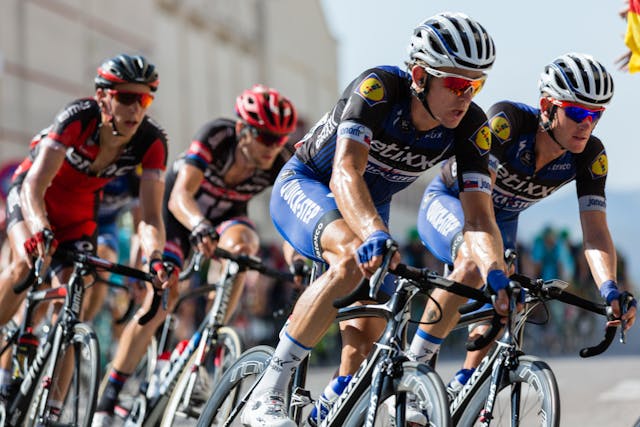In recent years, esports has exploded in popularity, bringing millions of fans and players together in a thriving competitive gaming scene. With tournaments filling stadiums and prize pools reaching millions of dollars, many people are asking, “Is esports a sport?”.
Understanding the Rise of Esports and Its Comparison to Traditional Sports
This question has sparked debates in the sports world, among academics, and within the college gaming community itself. To understand this debate, we need to explore the origins of esports, how it compares to traditional sports, and why it has gained recognition on a global scale.
The Evolution of Esports
Esports, or electronic sports, began as small-scale video game competitions but quickly evolved into an organized industry. Early tournaments for games like Pong and Space Invaders in the 1980s laid the foundation for modern esports. By the 2000s, games like Counter-Strike, Fortnite, StarCraft, and League of Legends transformed esports into a professional arena with structured leagues, professional teams, and corporate sponsorships. Today, esports events like The International (Dota 2) and the League of Legends World Championship attract millions of viewers worldwide.
Comparing Esports and Traditional Sports
When comparing esports to traditional sports, similarities quickly emerge. Both require intense training, strategic thinking, teamwork, and split-second decision-making. In professional esports, players practice for hours each day, often under the guidance of coaches and analysts. Similar to physical sports, competitive gaming demands high levels of focus, endurance, and skill.
However, some question whether video games, which lack physical exertion in the traditional sense, qualify as “sports.” The answer isn’t straightforward, and it involves understanding the physical, mental, and organizational requirements of esports.
Is Gaming a Sport? Exploring the Definition and Criteria of Sports
To answer the question, “Is gaming a sport?”, it’s essential to first understand what defines a sport. The term “sport” typically refers to activities that involve physical exertion, skill, and competition. However, as society evolves, so do our definitions. Today, sports encompass a wide range of activities that extend beyond traditional physical competitions, incorporating mind sports like chess, which demand strategic thinking and mental endurance. With the rise of online gaming, venues like cyber cafes have become popular, and cyber cafe software helps these establishments manage operations efficiently, from booking to billing and security.
The Physical and Mental Demands of Esports
One argument for considering gaming a sport is the physical and mental demands it places on players. While esports may not require the same level of physical exertion as sports like football or basketball, it still demands impressive physical coordination and reaction times. Professional esports players:
- Train their reflexes: The reaction time required in games like Counter-Strike: Global Offensive or League of Legends can be as fast as 150 milliseconds, requiring immense focus and precision.
- Practice hand-eye coordination: Precise and coordinated movements are essential, as players use quick keyboard and mouse movements or controller actions to execute strategies.
- Mental endurance: Competitive matches can last several hours, requiring players to maintain focus and mental clarity for long periods.
Esports athletes often compare their training regimens to those of traditional athletes. Many follow strict routines, engage in mental conditioning exercises, and even work with physical trainers to avoid injuries like carpal tunnel syndrome and tendonitis.
Recognition from Major Sports Organizations
In recent years, several sports organizations have acknowledged esports as a legitimate form of competition. For example:
- The International Olympic Committee (IOC) has explored adding esports to the Olympics, acknowledging its popularity and competitive nature.
- Some countries, such as South Korea and China, officially recognize esports players as athletes, allowing them to receive benefits and support similar to traditional sports figures.
The growing acknowledgment of esports by these institutions lends credibility to the argument that gaming can indeed be considered a sport, even if it differs in physicality from traditional activities.
Why Esports is a Sport – Key Arguments Supporting Esports as an Athletic Competition
There are strong arguments supporting the notion that esports qualifies as a sport. Advocates argue that esports demands a level of skill, training, and competitiveness that aligns with traditional sports. Here’s why esports is a sport according to many experts and fans.
1. Competitive Structure and High-Stakes Tournaments
Like traditional sports, esports has a highly organized competitive structure with leagues, tournaments, and rankings. Games such as League of Legends, Dota 2, and Fortnite feature world championships that draw millions of viewers and offer prize pools that rival those of major sports tournaments. For example:
- The International (Dota 2) has offered prize pools exceeding $40 million, with teams from around the world competing for the title.
- League of Legends World Championship consistently garners millions of viewers, demonstrating the wide appeal and fan loyalty in esports.
This level of competition and organization mirrors traditional sports leagues like the NBA or the Premier League, highlighting the professional nature of esports.
2. Rigorous Training and Skill Development
Professional esports players follow demanding training regimens to stay competitive, similar to athletes in physical sports. A professional player might practice 6-12 hours a day, focusing on refining their skills, analyzing game strategies, and improving their physical and mental endurance. Here’s what training typically involves:
- Game Mechanics: Players spend countless hours perfecting their mechanics, such as aiming in first-person shooters or executing complex moves in MOBAs.
- Team Coordination: Team-based esports games require strong communication and strategic thinking, which players practice to improve synergy with teammates.
- Mental and Physical Health: Many teams now employ coaches, nutritionists, and mental health professionals to ensure players are at their best, both mentally and physically.
This level of dedication and skill development underscores the argument that esports should be recognized as a sport.
3. The Demand for Strategic Thinking and Quick Decision-Making
Esports games require quick reflexes and decision-making under intense pressure. In games like CS or Valorant, players must think on their feet, adapt to opponents’ strategies, and execute complex plays in seconds. The strategic depth and tactical awareness needed to succeed in these games are comparable to what’s required in traditional sports like basketball or football, where players must react instantly to dynamic situations on the field.
The mental and strategic aspects of esports reinforce the notion that it’s a competitive activity that requires athletic attributes, even if the physical demands are different from traditional sports.
Why Esports is Not a Sport – Arguments Against Esports as a Traditional Sport
While there are compelling arguments in favor of considering esports as a sport, there are also reasons why some believe that esports should not be considered a sport. Critics argue that esports lacks the physical demands and health benefits typically associated with traditional sports, leading to debates about its classification.

1. Lack of Physical Exertion
One of the primary arguments against classifying esports as a sport is the absence of significant physical exertion. Traditional sports like football, basketball, and soccer require intense physical activity, which contributes to cardiovascular health and overall fitness. Critics argue that since esports involves limited physical movement, it doesn’t meet the physical criteria of a sport:
- Minimal Physical Movement: Unlike traditional sports, esports players remain seated for extended periods and primarily engage their hands and fingers, which some say doesn’t align with the physical intensity associated with sports.
- Health Concerns: Sedentary behavior, which is common in gaming, can lead to health risks such as back pain, eye strain, and repetitive strain injuries. This contrasts with traditional sports, where physical activity promotes health and well-being.
For some, the lack of physical exertion in esports disqualifies it from being recognized as a true sport.
2. Perception and Social Acceptance
Another reason why esports is not a sport is that society still struggles to accept gaming as an athletic pursuit. Despite the rapid growth of esports, it’s often viewed as a form of entertainment rather than a legitimate sporting activity. Common perceptions include:
- Stereotypes Around Gaming: Many people see video gaming as a hobby for entertainment or relaxation rather than an athletic pursuit. Traditional sports have a long history of societal acceptance, while esports is still relatively new and breaking into mainstream culture.
- Comparison to Mind Sports: Critics argue that esports is more similar to activities like chess or poker, which are recognized as competitive games but often not categorized as sports. These activities require skill and strategy but lack the physicality commonly associated with athletic sports.
This perception affects esports’ acceptance in broader society and is one reason some believe it shouldn’t be classified as a sport.
3. Inconsistent Regulations and Lack of Unified Governance
A final argument against esports as a sport is the lack of standardized rules and governance. Traditional sports are governed by established organizations that regulate competitions, enforce rules, and maintain fairness. In contrast:
- Fragmented Governance: Different games have different organizations overseeing them, often with varying rules and formats. Unlike sports leagues governed by official bodies, esports organizations are usually game publishers or third-party tournament organizers.
- Lack of Standardized Health and Safety Guidelines: With no universal regulatory body, esports lacks standardized health guidelines and support systems, making it harder to address player well-being on an industry-wide level.
The absence of unified regulations and governance can make esports feel less like a traditional sport and more like a collection of loosely connected competitions.
The Future of Esports as a Recognized Sport
The esports industry continues to grow rapidly, and with increasing acceptance from mainstream organizations and audiences, it’s only a matter of time before esports becomes universally recognized as a legitimate sport. The dedication, skill, and competitive nature of esports are undeniable, and as societal definitions of sports evolve, so too will the recognition of competitive gaming.
In the future, we can expect to see more institutional support for esports, further blending the lines between traditional and electronic sports. This evolution reflects how modern culture embraces new forms of competition, proving that esports is indeed a sport in its own right.
In 2025, more than 20 countries have already implemented formal policies to support esports in education, including South Korea, Germany, the United States, and several nations across the Middle East and Southeast Asia. Esports degrees, varsity programs, and intercollegiate leagues are growing rapidly, with universities integrating gaming into their curriculum to enhance skills in teamwork, strategic thinking, and digital literacy.
Additionally, global sporting institutions such as the International Olympic Committee and national sports ministries are recognizing esports in official frameworks. Events like the Olympic Esports Week and the Asian Games (where esports is now a medal sport) are helping legitimize competitive gaming on a global stage. This ongoing recognition signals that the integration of esports into the mainstream is not just a trend — it’s the next evolution of competitive sports.
FAQ
Why is esports a sport?
Esports is considered a sport because it requires skill, strategy, training, and competition. Professional players train rigorously, compete in tournaments, and demonstrate athletic attributes like reflexes and endurance.
Why is esports not a sport?
Some argue that esports is not a sport because it lacks physical exertion compared to traditional sports. Critics believe that the sedentary nature of gaming disqualifies it from being categorized as a traditional athletic activity.
Why esports should not be considered a sport?
Opponents argue that esports should not be considered a sport due to its minimal physical activity, lack of standardized regulations, and society’s perception of gaming as entertainment rather than athletics.
Why is esports recognized by sports organizations?
Esports is recognized by some sports organizations because it exhibits qualities similar to traditional sports, such as competition, skill, fan engagement, and structured tournaments. This recognition highlights the growing acceptance of esports as a legitimate competitive field.

